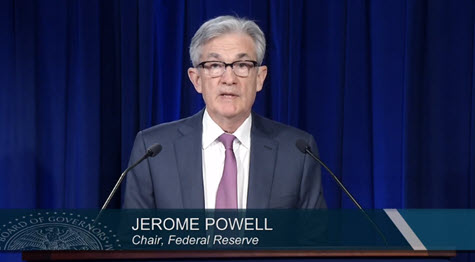
The Federal Reserve yesterday released its Summary of Commentary on Current Economic Conditions, showing that “commercial real estate conditions continued to deteriorate in many Districts.” There are twelve federal reserve geographic districts that gather information for the report, which is released eight times per year.
- The Fed report, also known as The Beige Book, adds that CRE market exceptions are the warehouse and industrial sectors, “where construction and leasing activity remained steady.”
- The economic turbulence inflicted by the pandemic continues to damage CRE sectors such as retail and hotels, according to an Oct. 18 article in Politico. Mike Flood, senior vice president of commercial and multifamily policy at the Mortgage Bankers Association, stated, “What’s at risk here is both the ability for people to stay in their apartments and the ability for people to go to their jobs. So unless there’s a stimulus, there’s a lot less to go back to once we get back to normal times.” (Politico, “The next economic crisis: Empty retail space”)
- The efforts of Congress, the Treasury Department and the Federal Reserve to counter the economic repercussions of COVID-19 are summarized in a Congressional Research Service (CRS) report released Oct 19 entitled, “COVID-19 and the Future of Commercial Real Estate Finance.”
- The CRS report states, “Members of Congress have called on the U.S. Treasury and the Federal Reserve to open liquidity facilities to CRE and CMBS markets.”
The MSLP & CRE

The New York Times and Washington Post published articles this week on the disappointing results shown to date by the Federal Reserve’s federal lending facilities, including its Main Street Lending Program (MSLP).
- The Oct. 21 Times article reports that of the $454 billion Congress authorized in March for the Treasury Department to support various Fed emergency lending programs, $195 billion has been allocated so far – and only $20 billion in loans have been distributed.
- The Oct. 19 Post article reports that of the $75 billion dedicated to support the Fed’s MSLP, only $3 billion has been loaned to date. According to the Post, an ongoing obstacle to making the MSLP more effective is whether the Fed and Treasury can agree on a new set of rules to significantly expand the reach of the program.
- A broad coalition of national hotel executives on Oct 15 urged President Trump to take action by making immediate modifications to the MSLP that would increase participation in the program and help thousands of businesses crippled by the pandemic.
- “We strongly urge you to use your executive authority to direct the Treasury to encourage the Federal Reserve to amend and expand the Main Street Lending Program … to support struggling businesses, stem the impending wave of foreclosures, and save millions of jobs to ensure the health of the entire American economy,” the letter states.
- The hotel coalition emphasized that overly restrictive terms imposed by the MSLP continues to prevent the hardest hit businesses it was intended to support from accessing the program. “To date, only a small fraction of $600 billion in available loans have been utilized while the remaining funds – which are so desperately needed by industries like ours – sit idle and go unused,” according to the letter.
- Real Estate Roundtable President and CEO Jeffrey DeBoer testified about the MSLP – and how to improve access to Federal Reserve credit facilities for businesses such as manufacturing, retail, restaurants, real estate owners, and other asset-based borrowers – on Sept. 9 before the Senate Banking, Housing and Urban Affairs Committee. (Roundtable Weekly, Sept. 11)
- The Main Street program is not working, DeBoer testified, because there is little incentive for participating banks to make the loans – and the program’s eligibility, affiliation and underwriting rules are not designed to meet the needs of the businesses in need. (Video of DeBoer’s Testimony and Q&A with Senators)
- “The result: countless mid-sized retail businesses, restaurants, hotels, commercial and multifamily building owners are moving closer to shutting their doors forever,” DeBoer stated. (Roundtable Oral Comments and written statement)
- DeBoer added, “The recommendations that I have made on the Main Street Lending Program … really require no additional funds from the federal government. They are administrative. They could be done tomorrow by the Treasury and the Fed if they wanted to.” (Roundtable Weekly, Sept. 11)
- Fed Chairman Jay Powell on Sept. 23 testified on the MSLP before the House Oversight and Reform Select Subcommittee on the Coronavirus Crisis, stating the central bank has “done basically all of the things that we can think of.” Powell added, “There is nothing major that we see now that would be consistent with opening it (MSLP) up further.” (American Banker, Sept. 23)
The Roundtable continues to work with its national real estate trade partners, membership and other stakeholders to develop effective recommendations for policymakers to improve the MSLP, as well as identify alternative strategies to bolster CRE sectors and other industries struggling with the pandemic’s ongoing economic impact.
# # #














